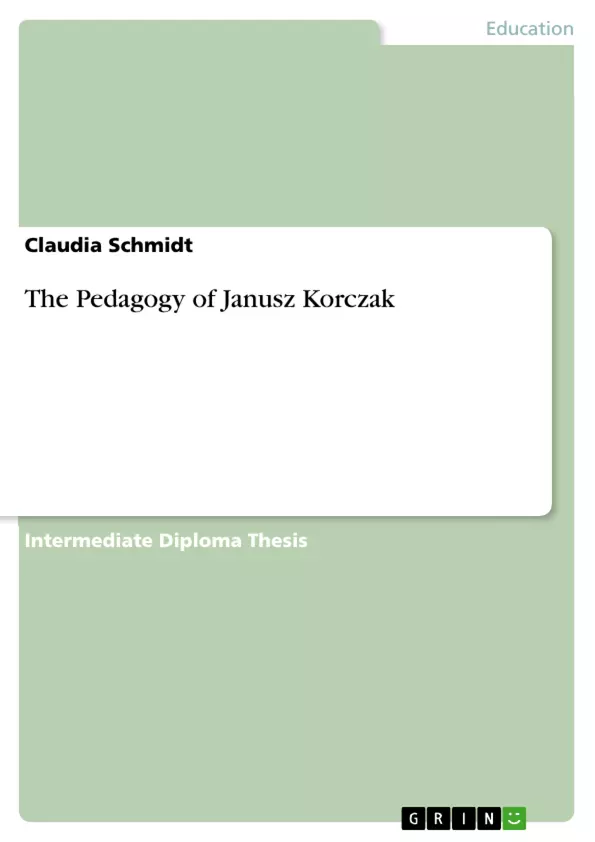This paper deals with these questions, the basics of Korczak's pedagogy and his attempt to enforce respect for the child and the equality of adults and children in society. Janusz Korczak - the Polish doctor, writer and educator left behind a wealth of suggestions, novels, stories and child psychological treatises that still inspire and encourage people today, especially educators, to follow his unique pedagogy. An enormous range of literature can be found about his pedagogy, which primarily refers to his life and not so much to his pedagogical background. These pedagogical backgrounds are above all respect for and unconditional love of the child. Like no other, Korczak put his life at the service of children and did not represent his pedagogy through mere theories, on the contrary, Korczak lived his pedagogy. But who was Janusz Korczak? What was his idea of a "good" educator? What makes his pedagogy so unique and how does Korczak's concept differ from that of other pedagogues?
Inhaltsverzeichnis (Table of Contents)
- Introduction
- The pedagogue Janusz Korczak
- The image of the educator
- Children's rights
- The Pedagogy of Love
- Narrative Pedagogy
- The child as a stranger
- The equivalence of adults and children
Zielsetzung und Themenschwerpunkte (Objectives and Key Themes)
This work aims to explore the pedagogy of Janusz Korczak, a Polish doctor, writer, and pedagogue. It examines his ideas about education, focusing on his unique perspective on respecting children, fostering their equality with adults, and promoting love and empathy in the educational process.
- Korczak's life and work as a pedagogue
- His understanding of the child and childhood
- The role and responsibilities of the educator
- The importance of respect and equality in the relationship between adults and children
- Korczak's concept of empathy and its relevance in education
Zusammenfassung der Kapitel (Chapter Summaries)
- Introduction: This chapter sets the stage for the work by introducing Janusz Korczak's thoughts on the importance of children in society and the need for educators to dedicate their efforts to their development. It emphasizes his view that education should be tailored to the unique needs and perspectives of each child.
- The pedagogue Janusz Korczak: This chapter delves into Korczak's life and career, tracing his pedagogical journey from his early experiences with children in slum areas to his leadership of the Jewish orphanage "Dom Sierot" in Warsaw. It highlights his emphasis on observing and understanding children as individuals, and his rejection of traditional pedagogical approaches that focused on control and conformity.
- The image of the educator: This chapter examines Korczak's vision of the ideal educator, emphasizing the importance of empathy, understanding, and a genuine commitment to accompanying children on their individual paths of development. It also explores his critique of traditional power structures in education and his call for a more egalitarian relationship between adults and children.
Schlüsselwörter (Keywords)
This work centers on the pedagogical philosophy of Janusz Korczak, exploring key concepts such as respect for the child, empathy, equality, and the importance of dialogue in education. It also delves into his critiques of traditional pedagogical practices and his emphasis on understanding the unique needs and perspectives of each individual child.
- Quote paper
- Claudia Schmidt (Author), 2005, The Pedagogy of Janusz Korczak, Munich, GRIN Verlag, https://www.hausarbeiten.de/document/1187333


